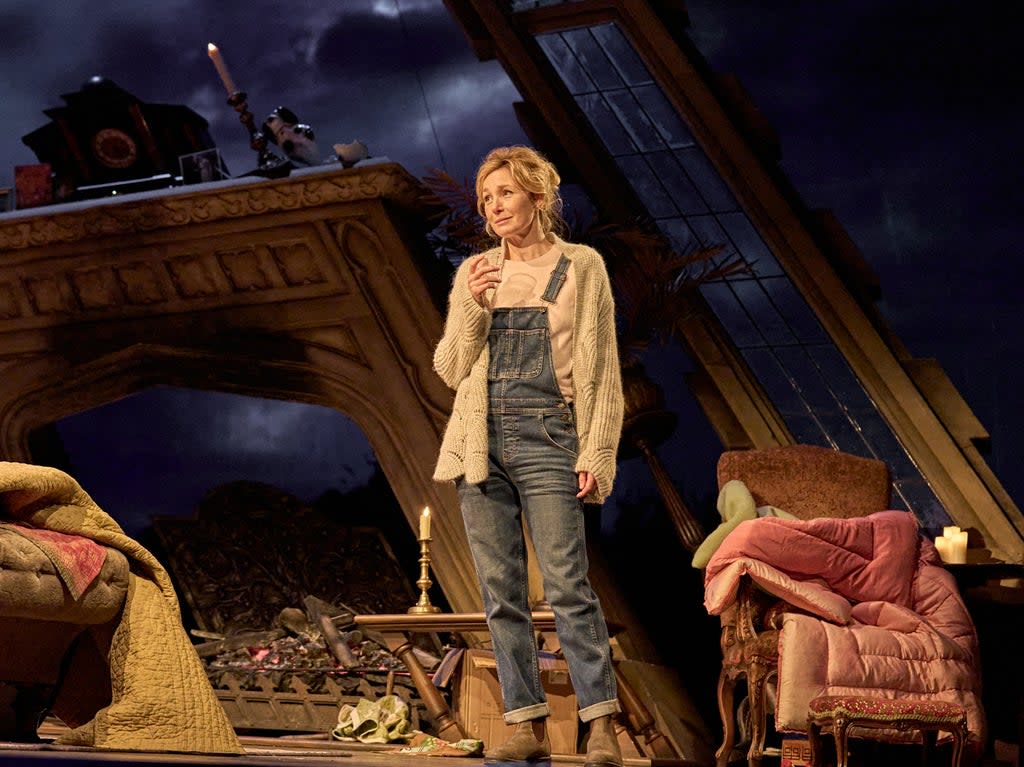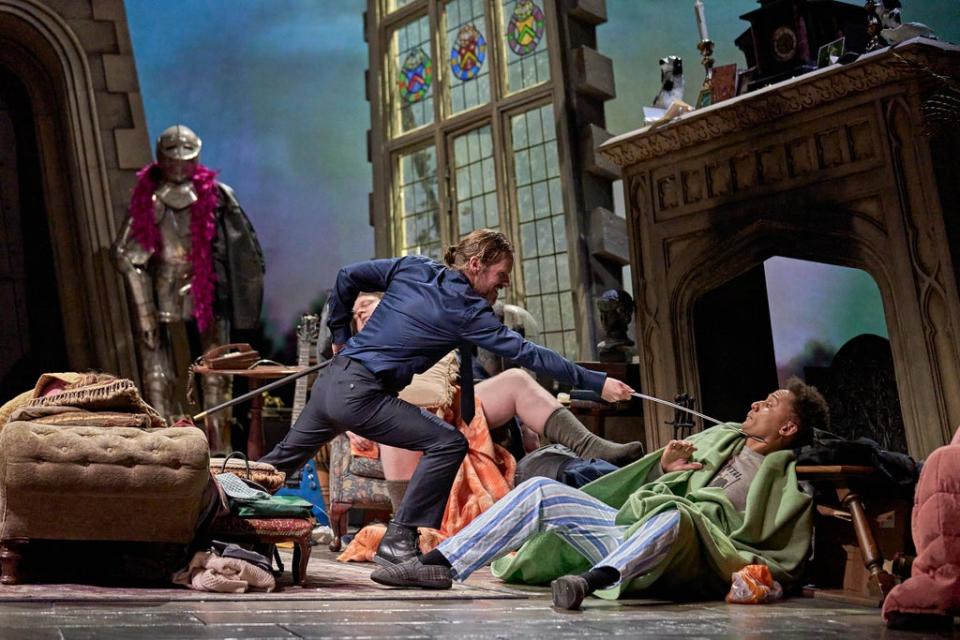Manor review: A damp squib that never ignites

If there was ever a time for a grand, sweeping state of the nation play, it would be now. Moira Buffini’s newest play, Manor, steps up to the plate, taking aim at a broad subsection of British society and attempting to diagnose the UK’s various ailments through the guise of a country house farce.
You’ve heard this one before: in the middle of a biblical storm, a ragtag group of survivors arrive at a shambling manor house in need of shelter. There’s the lady of the house (Nancy Carroll, tightly wound), whose main concern is maintaining her family’s ancestral seat; a doctor-to-be cast in from Balham on her weekend away (the excellent Michele Austin, in a sensitive and grounded performance that forms the beating heart of the show); and a doddery but well-intentioned vicar (an endearing David Hargreaves). Oh, and a few fascists turn up too, led by Shaun Evans’s mercurial, man-bunned Ted Farrier, leader of the alt-right group Albion.
Add in a strange, unexplained banging coming from the attic and a couple of seemingly accidental deaths, and the Cluedo pieces should all be in place. But ultimately, Manor is a peculiar disappointment, a damp squib that never ignites: not funny enough to earn its stripes as a black comedy, nor incisive enough to say anything particularly prescient about the UK’s political situation. There is a shallowness to the jokes: when a teenager enters the manor, her first impulse is to complain about the lack of wifi. Vaguely amusing in 2009, perhaps, but eye-roll worthy in 2021. Not to mention the sprinkling of lazily constructed fat jokes that would have been better left on the cutting room floor.
Matters aren’t helped by Fiona Buffini’s direction, which is slack on the reins, undercutting the kind of propulsive momentum necessary for a farce. Her cast of 10 feel unmodulated on the cavernous Lyttleton stage, each pitching themselves at slightly different levels, rarely feeling like they are genuinely communicating with one another. And although Lez Brotherston’s design has more than a splash of Dali-esque surrealism in its warped, exaggerated angles, it is woefully misused by Buffini, who tends to strand her cast in a narrow, barren strip of space downstage.

Evans excels as Ted: he is a skulking, leonine presence, a conductor and a conjuror (Diana helpfully points out that he’s a bit like Mephistopheles), who rejects the idea that he is a fascist, instead insisting that he’s there to provide the country with direction. To watch him manipulate the truth in real time is morbidly fascinating, like watching a magician pull a rabbit out of thin air. And yet, similarly to the Donmar’s recent Love and Other Acts of Violence, there is an imprecision to Buffini’s depiction of contemporary fascism, with the playwright resorting to a rather cartoonish depiction of the right, which boils down to a vague “women should go back to the kitchen and England should be great again”.
Manor ends up saying very little, except for a generic appeal to love one another and to see that “in our differences, we are the same”, a trite conclusion to come to after almost three hours. “I feel like I’m floating an inch off the ground,” Carroll’s Diana states in the aftermath of a personal loss. “There’s a detachment.” One feels similarly about Manor.
‘Manor’ runs at the National Theatre until 1 January 2022
Read More
‘It feels like a step forward’: The play that’s paving the way for pregnant actors in theatre
Rare Earth Mettle review: A bloated three hours of incoherence


